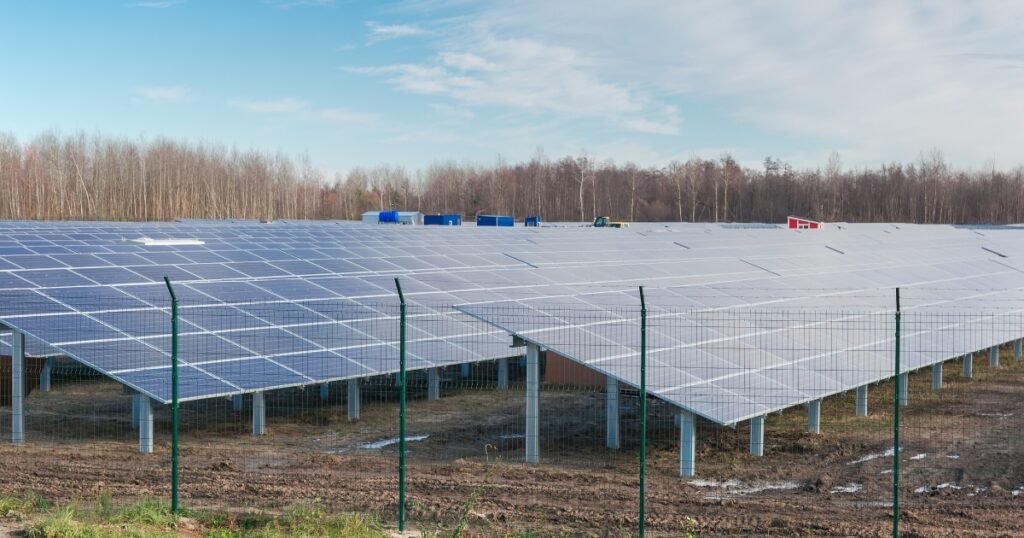
Solar power is getting rather popular as more people search for sustainable and clean energy. These days, more landowners and homeowners consider solar. Although ground-mounted solar panels are increasingly popular, especially if you have excess space on your property, rooftop systems are more typical. For your property, then, is ground-mounted solar a suitable option?
Look at a few salient features before you make decisions. We will walk you through the key ideas in this blog to help you determine whether a ground-mounted solar system is appropriate for you.
Ground Mounted Solar: What is it?
Ground-mounted solar systems replace a roof with direct ground level placement. Installers set the panels on frames or stands that allow one position or movement to follow the sun. This arrangement provides additional choices for how to angle and size the system and suits homes with lots of open space.
Key Factors to Consider
1. Land Space
First, you need enough open space. Usually running 5 kW ground-mounted solar systems cover 400 to 500 square feet. This arrangement can be ideal if you have farmland, an empty field, or a large backyard. A rooftop system would be a better option, though, if your outdoor area is limited or used for leisure and entertainment.
2. Sunlight and Shade
Next, your solar panels need full sunlight for most of the day. Ground-mounted systems let you place panels at the best angle to catch the sun, which isn’t always possible on rooftops. Still, you should check for:
- Shade from trees or buildings
- Changes in sunlight during different seasons
- Local weather conditions
If your roof stays in the shade but your yard gets lots of sun, a ground-mounted system could be the smarter choice.
3. Soil and Land Conditions
Finally, look at the condition of your land. This affects how easy and affordable it is to install solar panels.
- Flat or slightly sloped land works best
- Rocky or loose soil may cost more to build on
- Areas that flood or have high water levels can damage equipment
A local solar installer can visit your site and check if the land is ready for solar, without needing costly changes.
4. Local Rules and Permits
Check the regulations in your area before putting in a ground-mounted solar system. Find out what your city, county, or homeowners’ association allow by getting in touch.
You should ask about:
- How far the system must be from property lines or roads
- The maximum height allowed
- How the system might affect the look of the neighborhood
Some places, especially in cities or suburbs, may not allow ground-mounted systems at all. So it’s important to check first and avoid delays later.
5. Looks and Landscaping
Ground-mounted solar panels are easier to see than rooftop ones. Some people don’t like how they look. However, you can hide them with plants, trees, or fencing. Others actually like their modern, clean style.
If keeping your yard looking nice is important to you, think about how the panels will fit in with your landscaping plans.
6. Easy to Clean and Fix
One big benefit of ground mount solar systems Maryland is how easy they are to reach. You don’t need ladders or special gear to clean or repair them, unlike rooftop panels.
This helps a lot in areas with dust, snow, or pollen. You can clean them more often and keep your system running efficiently.
7. System Size and Power Needs
If you use a lot of electricity, ground-mounted panels are a great choice. They give you more room to install more panels than your roof can hold.
This is perfect if you have electric vehicles, large appliances, or run a home-based business. You can grow your system as your energy needs increase.
Is Ground-Mounted Solar Right for You?
Ground-mounted solar systems give you flexibility, strong performance, and easy maintenance. They work best for properties that have:
- Plenty of open, sunny land
- Few zoning or permit limits
- High electricity use
- Little or shaded roof space
However, you still need to plan ahead. You’ll need a proper site check, some land prep, and to think about how the system looks and follows local rules.
If your property meets most of these points, ground-mounted solar could be a smart and eco-friendly choice for your future energy needs.
